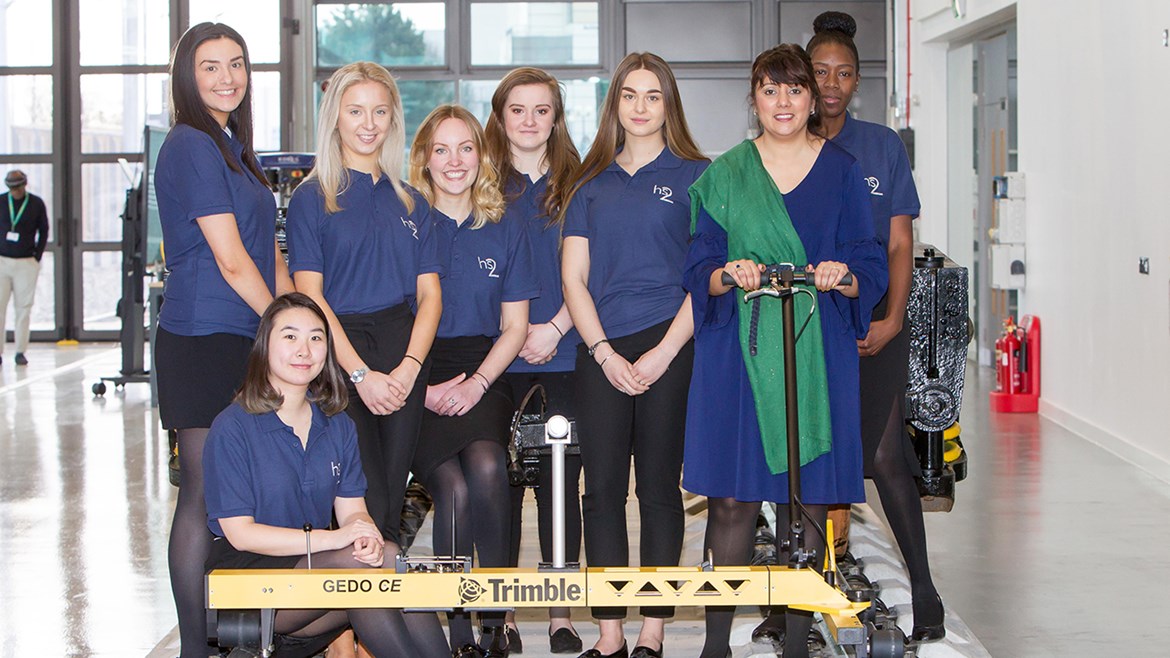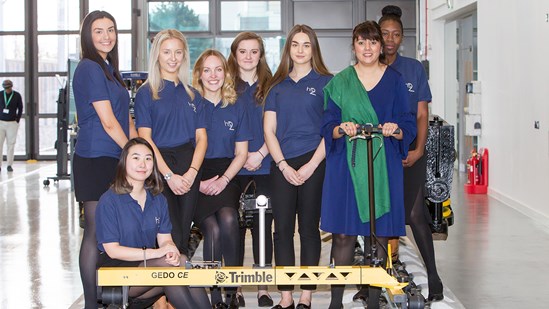A whole generation of engineers, designers, architects and geologists will benefit from the construction of the new high speed railway as the project gears up to support 30,000 jobs and create opportunities for British businesses to upskill their workforce.
As the programme moves to construction, the number of roles supported by HS2 is forecast to reach 15,000.
Today HS2 Ltd sets out its programme of skills, employment and education interventions that will ensure the UK not only has the skills to deliver the HS2 project, but to become a worldwide leader in high speed rail.
Over 7,000 roles are already supported by the project. With construction starting next year, many more jobs around the country will help build a skills base to export around the world.
Mark Thurston, Chief Executive of HS2 Ltd said:
“Our skills strategy, launched today, shows how we will create a sustainable pipeline of jobs and skills for companies across the whole country, which boost regional economies and help Britain compete internationally.
“Our programme will tackle the skills challenges faced by the wider transport infrastructure sector, and ensure the UK has the best skills to deliver HS2 as well as major infrastructure projects in the future.”
HS2 Minister Nusrat Ghani MP said:
“HS2 will provide the backbone of our future rail network and is already driving jobs and economic growth across the country. HS2 already supports over 7,000 jobs – forecast to reach around 15,000 by 2020 – and is building the talented workforce of the future that this transformative project needs.
“The ambitious programme of skills, employment and education set out today will see the economic benefits of HS2 fully realised across the UK, boosting productivity and sharing prosperity across the country.”
Apprenticeships and Skills Minister Anne Milton said:
“Apprenticeships offer incredible opportunities for young people. Everyone studying an apprenticeship with HS2 will be able to look back and say they played a role creating our country’s future. Not only that, the apprentices are also learning exactly the skills that future employers are looking for – that’s what apprenticeships are all about.
“HS2 is creating 2,000 apprenticeships and is a fantastic example of a national project that is providing opportunities for everyone, whatever their background and wherever they come from. I look forward to meeting some of the apprentices that have been a part of making it happen."
New initiatives will be introduced over the next 12 months to stimulate interest in STEM subjects and encourage more young people into transport infrastructure related careers. Opportunities will be opened up through a new Job Brokerage Service to help people access the jobs created by the HS2 supply chain, and a new Secondary Education Engagement Programme will inspire the next generation to enter transport infrastructure careers.
Through HS2 contracts, there are already hundreds of businesses creating opportunities for their workforce.
Explore Manufacturing, part of the Laing O’Rourke group, has won a contract with LM joint venture to supply major bridges as part of the early works on Phase One of the project.
The modular components will be manufactured at Explore Industrial Park in Workshop, North Nottinghamshire, and then brought to site in the West Midlands for assembly.
The company recruits a minimum of 4 apprentices each year and when the HS2 related work commences in the factory it will create 35 new jobs.
Alan Clucas, Director of Explore Manufacturing said:
"We are proud to be working on the biggest rail infrastructure programmes in the country. For Explore Manufacturing it means a significant contribution in digital design and high quality off site manufacturing, which shortens time needed on site, and has big benefits in safety, efficiency and programme costs."
Richard Kirkham, LM Project Director said:
“By working on the HS2 project, and linking to the National College for High Speed Rail with four apprenticeships, as well as other schools and college liaison across the region, we’re giving local people the opportunity to gain world class skills and knowledge, create a sustainable pipeline of jobs, and be in a great position to win future work with large-scale infrastructure projects.”

